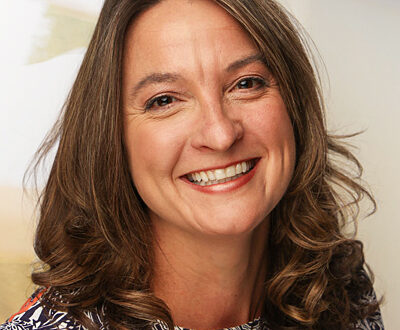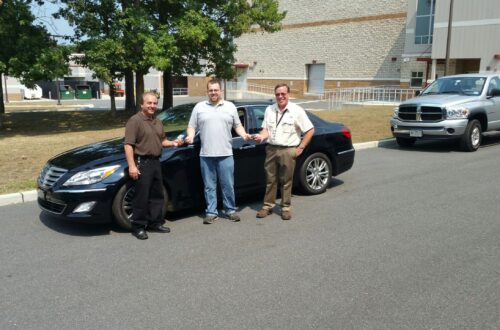Maryland Shop Owners Prevail Against Short Pays

Wednesday, 25 September 2013 22:21
Featured in AUTOBODYNEWS
Anyone who has been involved in repair for any amount of time knows how frustrating it can be when insurers refuse to pay the full amount billed for a repair. Many repairers count their losses and move on to the next vehicle, but Mark Schaech Jr., co-owner of Mark’s Body Shop in Baltimore, MD, refuses to take this insult lying down. While he and his partner, his father, would prefer to avoid the necessity of taking legal action, he’s definitely “not taking it anymore!” Schaech knows this is a common problem that shop owners face, so he’s glad to share his experience and advice with collision repairers across the nation.
In May 2013, Schaech won his first short-pay lawsuit against GEICO for $392.95. Since then, Schaech won a case against State Farm when the insurer filed a replevin lawsuit (replevin is a legal remedy for a person to recover goods unlawfully withheld from his or her possession) against him, claiming his charges for storage were unreasonable and not competitive within the market area. Mark’s Body Shop was holding a car while awaiting payment, but when State Farm settled with the car’s owner and took title, they refused to pay Schaech. The repair contract was the deciding factor in Schaech’s victory, playing a huge role “like it does in any other case,” according to Schaech, who added that “it is so important that your documents are in line.” In addition to being paid the full amount owed, Schaech was also reimbursed for his attorney’s fees. He feels the victory was very important since a loss would have given State Farm, and possibly other insurers, precedent for refusal to pay on total losses.
Schaech credits the CCRE (Coalition for Collision Repair Excellence) for his knowledge of such legal actions, noting that “the first time I heard of a shop taking control of their business was at a CCRE meeting.” He followed that up by hiring an industry consultant, Barrett Smith, of Auto Damage Experts and a good Maryland attorney, Anthony DiPaula to support his efforts to take control of his own business. He is also grateful to all of the “attorneys fighting a successful fight.” His next case involved an assignment of proceeds, ammunition he obtained from industry lawyer Erica Eversman, but it doesn’t stop there! Schaech is currently pursuing numerous lawsuits, including one involving an older claim of two short-pays from GEICO and a similar suit against State Farm.
The lawsuits that Schaech is currently pursuing are older claims since he has not had any recent problems with GEICO, which he attributes to his successful case in May. Most insurers are paying his operation costs, though labor rates with insurers refusing to pay his full labor rate continue to be a problem. The one exception he notes is State Farm who always leaves a short-pay, but for now, the customers are paying the difference. Schaech is not taking any additional assignments of proceeds at this time as he has several in progress.
Schaech notes, “I would say that 90% of the time, insurers in our market refuse to reimburse our customer for their entire repair bill. These short pays are for reasonable and necessary rates and procedures required to repair our customers’ vehicles to pre-loss condition to the best of human ability. It seems that the larger the carrier, the worse the behavior. It seems like as opposed to fairly paying claims, these carriers would prefer to spend those dollars on advertising campaigns.”
Regarding what may cause him to hesitate before filing a lawsuit, Schaech admits that it can be expensive and time-consuming to sue an insurance carrier, especially when the short-pays are small amounts, but one way to combat that is to pile several claims into one case, making it more efficient. His ultimate goal is to handle these cases on his own; as he attends the trials, he is educating himself via his attorney in hopes of being able to handle future suits in small claims court on his own. “All I will have to spend is time which I’m more than willing to do in order to ensure my customers are being taken care of,” Schaech notes.
The short-pay lawsuit in May was the first that Schaech actually pursued to trial. Because these types of cases are new to the Maryland court system, “it takes a bit of educating the courts that we are contracted by our customers to provide a proper and safe repair and do not have any contract with any insurance companies. But the misconception is that, because the insurance company is paying the bill, they have a right to inject themselves into the repair process when this is simply not the case. Because we are the experts, we carry all of the liability associated with the repair. We are the ones who have to provide a warranty to our customers and stand behind the repairs. We are the ones who know our cost of doing business. Therefore, only a shop can know what to charge for a given repair. The duty of the insurance company, by contract, is to make the customer whole, not to control the price or dictate the repair methodology, all while not sharing in the liability for those repairs.”
Though most insurance companies insist that they don’t pay for certain operations or that a shop is overcharging, Schaech insists, “the collision repair community knows that these are word tracks that insurance adjusters have been trained to use for years, and in most cases, these carriers do pay for that, and the shops that are asking to be compensated are not the only ones asking for these operations and rates.”
Schaech was happy when the judge ruled in his favor: “It felt good that the Judge got it. I also feel confident that the courts will continue to find in our favor as courts are in many other states all over the country. It takes a close look at the law and the insurance policies to realize that determining the cost of repairs and the repair methodology is not the business of insurance. In many policies, the insurance company has the option to take the customer’s vehicle and repair it themselves, but if they chose that option, they would have to accept all of the liability that goes along with the repair which is why they do not select that option.”
As a proud member of CCRE and SCRS, Schaech strongly encourages other collision repair experts to stand up for their rights. “I would encourage other shop owners to know their state laws and get a good attorney to work with. There are many shop owners across the country who have been forced to go legal, and these repairers have been an inspiration and have always made time to answer my questions and lend advice. There is unbelievable support available to those who want to learn.” Schaech’s desire to become more involved has also led him to become involved with the Washington Metropolitan Auto Body Association (WMABA) where he sits on the Board of Directors.
Schaech also assures other shop owners that the trial itself was not very difficult. “It was easy for us to explain who the expert repair professional is and who decides what the Final Bill should be, and the judge agreed that because GEICO doesn’t know our costs, they cannot possibly determine what we are able to charge.”
It is also important to note that Schaech’s lawsuit has not really affected his relationship with GEICO or any other insurers. His problem isn’t with the individuals that he deals with but the company’s policies on handling claims.
Schaech also takes issue with his state’s laws regarding insurance companies breaching contracts and how this affects consumers’ rights.
“If a Maryland Insurance Company breaches their contract with the policy holder, and the consumer wants to hold them accountable in a court of law, the consumer is not able to recover attorney’s fees in our state. This really inhibits consumers from taking action, even when it is obvious that they are in the right… I wish the carrier would spend some of those billions of dollars they spend on marketing to properly compensate consumers for quality and safe repairs. I see a lot of poor repairs that have been completed in shops who were not properly compensated for repairs, and this is a consumer problem, especially as it relates to consumers’ safety and the value of their vehicles.”
When asked what measures should be enforced to prevent the necessity of short-pay lawsuits, Schaech notes, “If insurers would get back to the business of insurance, selling policies and paying claims, and stay out of the collision business, we would not have to go this route. The reality is that, by law, consumers have the right to choose the body shop that they feel will do the best job, and by contract, the insurance company is supposed to indemnify the policy holder when there is a loss. So, I say ‘just pay the bill Mr. Insurance Company.’”
In 1975, Schaech’s father opened Mark’s Body Shop in a two-bay garage. After six years of refinishing cars through high school and college, Schaech managed the family business from 1999–2002 when they moved into their current 17,000 square foot facility. At that point, Schaech Jr. became his father’s partner.
Though Mark’s Body Shop repairs approximately 1000 cars annually, grossing around $3 million in sales, they do not participate in any DRPs, but that wasn’t always the case. “There was a time when we participated in as many as five DRP programs, but over the years, these programs developed into bargain basement repair programs. We were asked to use more aftermarket and junk yard parts which we find to be a lower quality alternative to new OEM parts. We were instructed to utilize remanufactured wheel and junkyard suspension components which we believe to put our customers in harm’s way. Finally, we were asked to work so cheaply that it became difficult to invest in new equipment and training which is imperative to repair today’s modern vehicles.”
To shops that are currently facing difficulties obtaining full payment on repairs, Schaech offers the following advice: “There are numerous organizations and individuals in our industry who really care about consumers and repair facilities. These leaders are only a phone call or email way and willing to provide sound advice when a shop owner or consumer needs some sound advice.”
“The reality is not all shops are the same; we all have different costs, different levels of quality, different equipment and training, different certifications, and different fixed costs. It just doesn’t make sense that we can all work for the same price.”
Mark’s Body Shop
4025 Mortimer Ave.
Baltimore, MD 21215
410-358-5155
www.marksbodyshop.com


